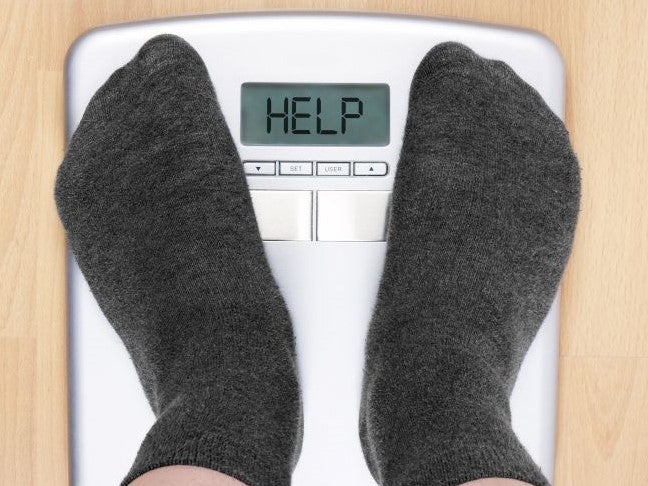It’s Healthy Weight Week.
A focus on “healthy weight” is important because being a weight that is appropriate for your particular body should be considered a health issue rather than something associated with beauty or attractiveness.
Being a healthy weight can be a key factor in protecting you from developing degenerative diseases, such as Type 2 Diabetes and high blood pressure, in the future.
You may have read or heard many reasons for being overweight:
- That eating food has something to do with your emotional state
- You have a problem with will power
- You need to try the “X”, “Y” or “Z” diet
- It’s just a part of aging
- And many more theories.
If all of these theories didn’t help you lose weight, then they are the wrong reasons for your weight gain and inability to lose weight.
Maybe you are confused about what foods to eat and what foods to avoid. Maybe you did have some success and lost weight, but then put it all back on again.
Here’s something to consider. Being overweight is a symptom of your body not functioning as it should. Just like high blood pressure, high blood sugar or high cholesterol are symptoms, so is being overweight a symptom of non-optimum health. A weight problem is really a health deficiency.
When your body is healthy you have tons of energy, high stress tolerance, and can sleep peacefully through the night and get out of bed refreshed. Healthy bodies can digest their food and feel satisfied without any cravings. A healthy body has flexible joints, relaxed muscles and no inflammation.
So, to reduce excess fat and get back to a normal weight the solution is to return the body to optimum health. Do this, and the extra weight will be taken care of.
The secret to optimum body health is to have optimum cellular health and that means your metabolism is functioning the way it should. Your metabolism is the sum of the chemical reactions that take place within each cell and provide energy for vital processes.
Overweight is a metabolic disorder.
The Link between Excess Fat and Insulin Resistance
Sugar (glucose) is the source of energy for the cells. Healthy cells take in the sugar that results from digested food and use it to power the cells. It can happen that there is excess sugar in the blood and when this occurs it turns into fat. Excess sugar in the blood is a result of Insulin Resistance.
Today, most people consume a large amount of simple carbohydrates (which turn into sugar), sugar and processed foods.
Continual excessive sugar intake means insulin is being pumped into the blood continually in order to help the cells take up the sugar for energy. Over time, the cells become resistant to the normal amount of insulin and don’t utilize the sugar. The body’s response to this is to create even more insulin. So, over time there’s more sugar and more insulin in the blood while the cells continue being resistant to utilizing the substance they need to produce energy.
Both excess sugar and excess insulin have an effect on fat. The excess sugar has to be stored and normally that storage is inside the fat cells or fat droplets. Excess insulin can promote greater fat storage in the body.
The result is excess fat around the waist and other areas of the body. So, excess fat is a result of Insulin Resistance.
What can you do about Insulin Resistance?
The good news is that Insulin Resistance and excess fat can be addressed by dietary changes that: (1) reduce the amount of sugar (including carbohydrates) being put in the body and (2) promote better uptake of the sugar by the cells.
Diet
A high carbohydrate diet is not the diet that our bodies evolved with.
Genetically, our bodies are designed to respond to nutrition from meat, fat and plants. However, one of the reasons humans have been successful in adapting to changing environments is because the human body can also use carbohydrates to survive on an emergency basis.
For about the last 80 years the consumption of simple carbohydrates, sugar, and processed foods in the average diet has skyrocketed. Our bodies have increasingly been using carbohydrates for energy and that has led to an increase in Insulin Resistance.
The best diet to counter Insulin Resistance focuses on gaining nutrition from meats, plants and healthy fats, and reduces the amount of carbohydrates eaten.
Just following this one tip can make a huge difference to your ability to achieve and maintain a healthy weight.

